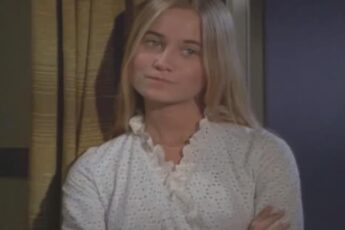The world lost a true icon with the sudden passing of Jeff Beck, a giant in the realm of music who redefined guitar playing in the 1960s. His death at the age of 78 has sent ripples of sadness through the music community and among fans worldwide. News of Beck’s passing was shared on social media by his family, who expressed their deep sadness over losing someone so dear and talented, asking for privacy as they navigate this difficult time.
The official statement read, “On behalf of his family, it is with deep and profound sadness that we share the news of Jeff Beck’s passing. After suddenly contracting bacterial meningitis, he peacefully passed away yesterday.” It was a shocking announcement, both sudden and heart-wrenching for those who have followed his illustrious career over the years.
Jeff Beck is often regarded as one of the greatest guitarists of all time—a true pioneer who constantly pushed musical boundaries and left an indelible mark on rock music. Over a career that spanned five decades, Beck never stopped experimenting, his fearless approach continually injecting new life into music. He first stepped into the global spotlight when he joined the Yardbirds in 1965, replacing Eric Clapton. During his tenure with the band, Beck invented the use of feedback—a revolutionary technique that has influenced countless musicians who came after.
Reflecting on this groundbreaking approach, Beck once shared on BBC Radio 2’s Johnnie Walker show how feedback initially happened by accident. “We played larger venues, around about ’64-’65, and the PA was inadequate. So we cranked up the level and then found out that feedback would happen,” Beck explained. “I started using it because it was controllable—you could play tunes with it. I did this once at Staines Town Hall with the Yardbirds and afterwards, this guy says, ‘You know that funny noise that wasn’t supposed to be there? I’d keep that in if I were you.’ So I said, ‘It was deliberate mate. Go away.’”
After parting ways with the Yardbirds, Beck released the hit single “Hi Ho Silver Lining” and soon formed the first incarnation of the Jeff Beck Group in early 1967. With Ronnie Wood on bass and Rod Stewart on vocals, they crafted sounds that resonated endlessly through time. Beck’s enduring musical prowess earned him induction into the Rock and Roll Hall of Fame not once, but twice: first with the Yardbirds in 1992 and then again as a solo artist in 2009—a testament to his influence and legacy.
Jeff Beck’s death has deeply impacted not only his fans but also fellow musicians who admired and were inspired by his work. Among them is Mick Jagger, who has shared heartfelt words about his late friend. They maintained a long-standing friendship, and Beck even contributed to Jagger’s first solo album, *She’s the Boss*, lending his exceptional guitar talents. “We have lost a wonderful man and one of the world’s best guitar players,” Jagger wrote, expressing a sentiment felt by many who knew him personally and through his music.
Jimmy Page, another iconic guitarist who once stepped into Beck’s shoes with the Yardbirds, also paid tribute to Beck’s unparalleled talent. “Jeff’s channeling abilities enabled him to access music from other levels. His approach is unique… When I say I’ll miss you greatly, I’m sure I speak for all your countless other fans,” Page wrote, capturing the essence of Beck’s unique genius and his profound influence on generations of musicians.
Jeff Beck was more than a musician; he was an innovator, a legend whose artistic vision transformed guitar playing forever. He leaves behind a legacy that will continue to inspire and influence countless musicians and music lovers around the world. As the music community mourns his passing, they celebrate the mark he left—a legacy that can never be replicated but will always be cherished. May he rest in peace, his spirit living on in every note he played and every heart he touched.




